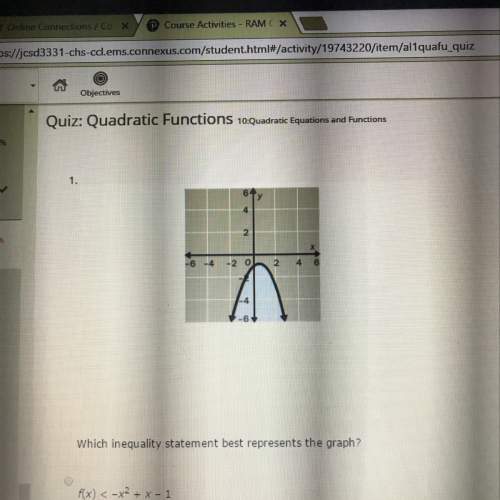
Mathematics, 02.03.2021 01:50 memeE15
The Riemann sum, the limit as the maximum of delta x sub i goes to infinity of the summation from i equals 1 to n of f of the quantity x star sub i times delta x sub i , is equivalent to the limit as n goes to infinity of the summation from i equals 1 to n of f of the quantity a plus i times delta x, times delta x with delta x equals the quotient of the quantity b minus a and n. Write the integral that produces the same value as the limit as n goes to infinity of the summation from i equals 1 to n of the product of the quantity 2 plus 3 times i over n and 3 over n.

Answers: 1


Another question on Mathematics


Mathematics, 21.06.2019 15:30
What is the measure of angle z in this figure? enter your answer in the box. z = ° two intersection lines. all four angles formed by the intersecting lines are labeled. clockwise, the angles are labeled 43 degrees, x degrees, y degrees, and z degrees.
Answers: 3

Mathematics, 21.06.2019 19:00
Billy plotted −3 4 and −1 4 on a number line to determine that −3 4 is smaller than −1 4 .is he correct? explain why or why not
Answers: 3

You know the right answer?
The Riemann sum, the limit as the maximum of delta x sub i goes to infinity of the summation from i...
Questions




Spanish, 01.12.2021 17:00


Spanish, 01.12.2021 17:00


Chemistry, 01.12.2021 17:00

Mathematics, 01.12.2021 17:00





Mathematics, 01.12.2021 17:10


Geography, 01.12.2021 17:10


Mathematics, 01.12.2021 17:10

Mathematics, 01.12.2021 17:10

Mathematics, 01.12.2021 17:10




